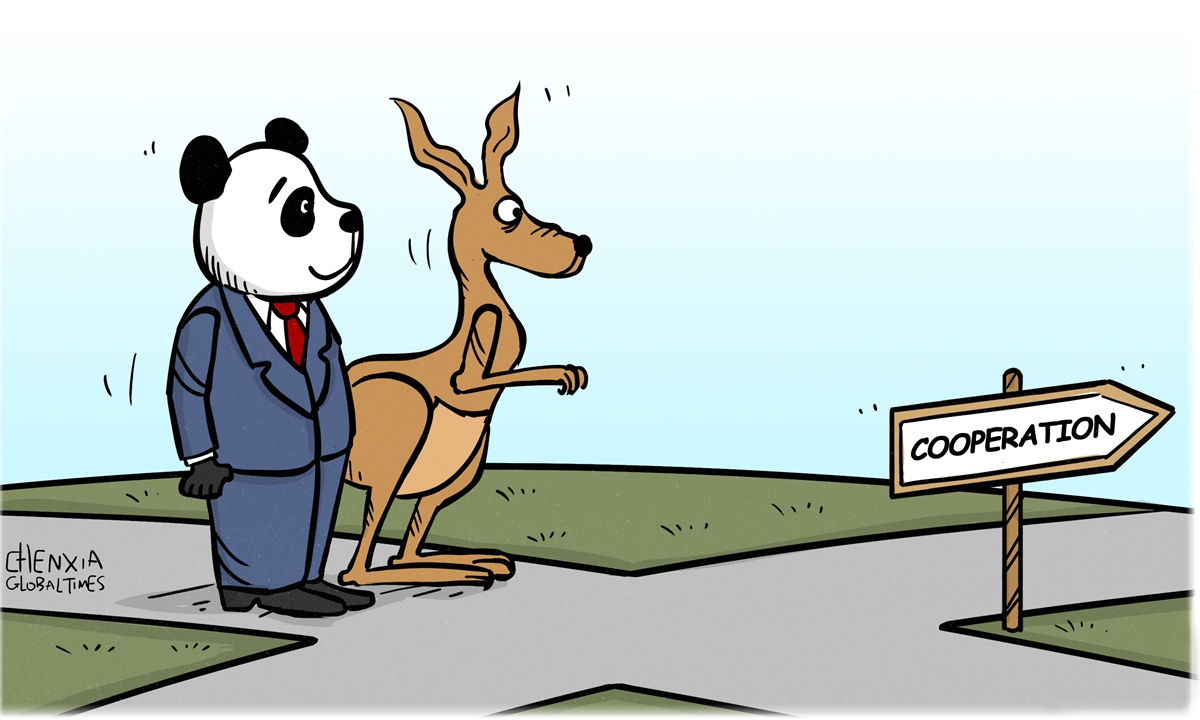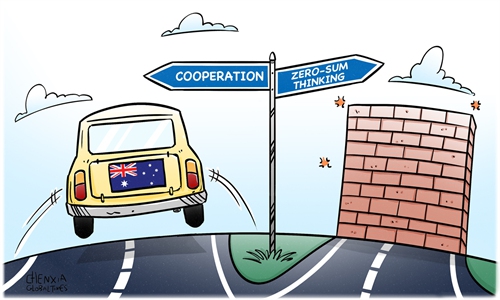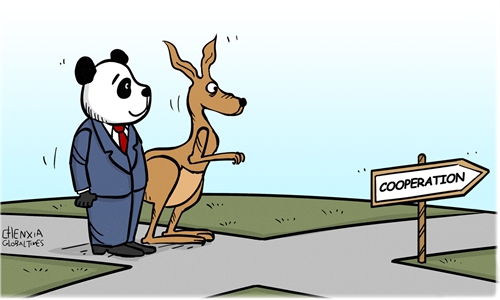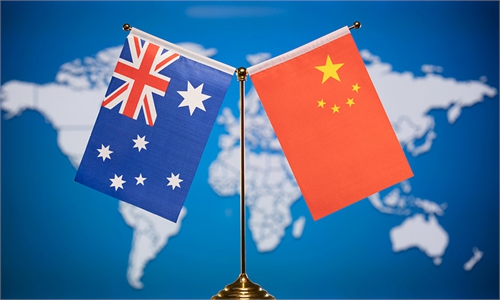
Illustration: Chen Xia/GT
Chinese Premier Li Qiang's visit to Australia concluded on Tuesday. His visit was the first by a Chinese premier in seven years, and is considered by many as a signal that bilateral relations are back on track after a period of twists and turns.In the past few years, China-Australia relations encountered difficulties and challenges that we did not want to see. The difficult period in bilateral relations has made people more aware of the need to adopt a pragmatic attitude in solving or managing disputes, and to enhance the mutually beneficial cooperation amid a complex international environment.
After going through various difficult tests, bilateral economic and trade relations are now standing at a new starting point full of great potential. The economies of China and Australia are highly complementary, with their cooperation enjoying strong momentum and fruitful results, bringing tangible benefits to both peoples.
Australia's economy is on the verge of crawling to a standstill, as high borrowing costs and still-elevated inflation have put the brakes on consumer spending. This requires the country to find new impetus to help restart the economy.
There is no shortage of opportunities in China-Australia economic and trade cooperation. China has been Australia's largest trading partner, export market and import source every year since 2009. If bilateral cooperation enters a new stage of prosperous development, it will inject growth impetus into the Australian economy.
It is hard-won progress, as bilateral ties have been gradually set back on track through joint efforts, but it is not yet time to be complacent or stop moving forward. It is necessary for both sides to step up cooperation in various fields including new-energy vehicles, renewable energy, energy conservation and environmental protection, as well as critical minerals.
Australia has a rich and diverse mineral endowment and a long history of discovering and developing critical mineral resources. Enormous potential remains to be tapped in bilateral cooperation.
For a long time, Australia has been hoping to increase local refining capability to move up the critical mineral value chain. With Australia in a rush to build renewable energy networks to cut emissions and slow climate change, where will the investment come from? China is an ideal partner for cooperation because Chinese companies have technological and financial advantages in this regard.
However, it's no secret that the US doesn't want to see China-Australia relations return to a normal, mutually beneficial state. Especially in the field of critical minerals, the US may want to disrupt and create obstacles for the development of normal economic cooperation between China and Australia.
In recent years, against the backdrop of Washington's decoupling push, the US has stepped up its pace in forming cliques and "small circles" on the international stage in an attempt to upgrade relations with its allies and reduce China's role in global critical minerals supply chains. Australia is likely to be seen by Washington as a tool to achieve its geostrategic objectives.
Critical mineral cooperation, to some extent, can be taken as the epitome of contemporary China-Australia economic relations. Australia's trade and investment relationship with China has long been in the shadow of the US. We sincerely hope that Australia can withstand the pressure from the US and push China-Australia economic relations to new heights.
In 2023, China bought A$219 billion ($144.35 billion) of Australian exports, accounting for 32.5 percent of Australia's total exports, according to media reports. Obviously, trade and economic cooperation between China and Australia is mutually beneficial.
If the Australian side holds a pragmatic attitude in dealing with its relations with China and pursues the optimal ratio between its investment of resources and strategic gains, it is believed that bilateral relations will constantly rise to new heights and the Australian economy will benefit.



